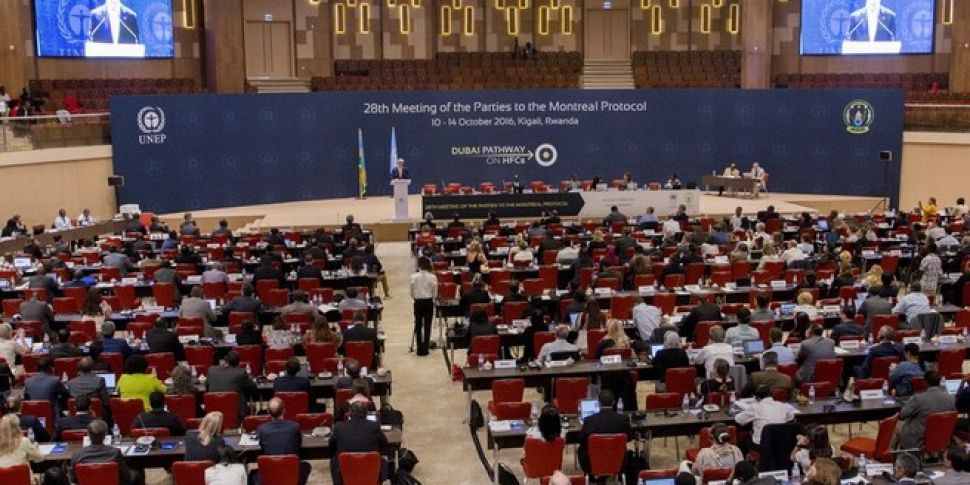Nearly 200 countries have agreed to a deal reducing greenhouse gases far more powerful than carbon dioxide in an effort to fight climate change.
The agreement divides countries into three groups with different deadlines to reduce the use of factory-made hydrofluorocarbon gases (HFCs), according to Rwandan minister Vinncent Biruta.
The developed nations, including most of Europe and the US, will reduce their use of the gas by 10% before 2019, reaching 85% by 2036.
More than 100 developing countries, including China, the world's worst polluter, will freeze their use of the gas by 2024.
A small group of countries, including India, Iran, Iraq, Pakistan and some Gulf states negotiated a later start in 2029.
That date is two years earlier than India, the world's third-worst polluter, had initially suggested. These countries will then reduce their use gradually.
Minister for Communications Denis Naughten today welcomed the agreement, described it as "another milestone in our battle to protect the planet from harmful gases".
"Ireland and our international partners in the EU and beyond are leading by example as we have already begun to phase down the use of HFCs," he said.
"By making the increased financial contributions to the fund we are demonstrating real and tangible commitment to the aspirations of the Montreal Protocol.
"The agreement reached at Kigali will stimulate our implementation programme and provide new opportunities for further development of alternatives to HFCs."
Minister Naughten also confirmed that Ireland was one of sixteen countries that had pledged to contribute an additional sum of €160,000 to assist developing countries meet their obligations under the protocol.
Environmental groups
Environmental groups say they hope the deal can cut global warming by a half-degree celsius by the end of this century.
Durwood Zaelke, president of Institute for Governance and Sustainable Development, said the agreement gets about 90% of the way there, with a statement from his group describing it as the "largest temperature reduction ever achieved by a single agreement".
Small island states, such as those in the Pacific, had called for quicker action, saying that they face the biggest danger from climate change.
Mattlan Zackhras, representing the Marshall Islands, said: "(The deal) may not be entirely what the islands wanted but it is a good deal.
"We all know we must go further and we will go further."
HFCs were introduced in the 1980s to replace ozone-depleting gases.
They are used in fridges, air conditioning, some inhalers and insulating foams.
But they can be 100,000 times more powerful than carbon dioxide as greenhouse gases and the threat grew as sales of fridges and air conditioning increased in developing economies such as China and India.









